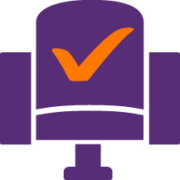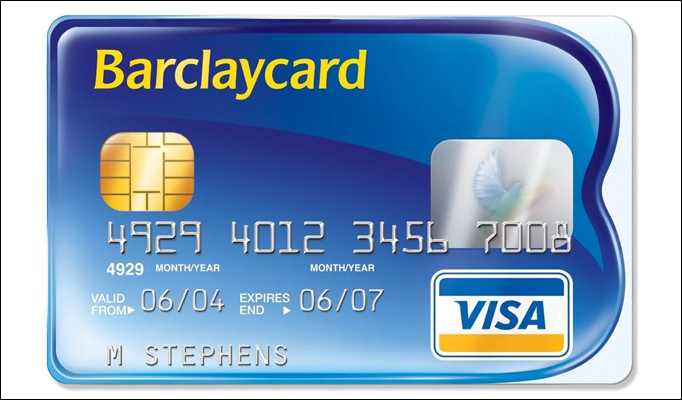Working with Deaf People – 20 Things They want you to Know

It’s always awkward starting a new job or welcoming a new colleague into the fold of your close knit group. When a hearing friend of mine was appointed customer care liaison for a reputable insurance company she felt like a burden to her fellow colleagues. They had to take time out of their busy schedules to train her and got frustrated when she forgot how to transfer calls.
She felt they were inconvenienced by her presence. She wanted to be liked, so she tried to figure things out on her own. Then, something bad happened. My friend advised a client that he would receive double his claim amount, because his wife died due to violent circumstances. However, the policy clearly stated that clients would only receive a double claim pay out if they or their spouse was disabled due to violent circumstances, not death.
Although the claims consultant had called the man explaining my friend’s mistake, the damage had been done and my friend was called into her manager’s office. Reprimanded and sent back to her desk with a verbal warning, my friend was humiliated. The incident could’ve been avoided, but my friend didn’t want to inconvenience her colleagues. This is how many deaf and hard of hearing people feel, every day.
It often seems as if hearing people just find us so inconvenient – as if I didn’t have to live with the ‘inconvenience’ every single day. . .
– Pamela Mang, deaf licensed marriage & family therapist.
Lack of Understanding when Working with Deaf People
It hurts when you don’t get invited to go with the team to the local coffee shop or pub, just because they find it awkward or inconvenient to communicate with you.
People need to understand that those who are deaf are capable of doing anything, no matter what. To me, my ears are broken, that’s all, but everything else is completely fine.
People think people with deafness are ‘slow’, ‘stupid’, not capable of working as a support worker, or even have an independent life.
They need to understand that deaf people face lots of barriers [in] communication.
– Eva Carlton, news.com.au
Deaf people face many barriers, especially when developing a career, but working with deaf people doesn’t need to be inconvenient, for either parties. There are many ways to improve communication with your deaf colleagues.
20 Things Your Deaf Colleague wants you to Know
- Look at me when you’re speaking to me. We try to pick up on all your facial clues, the ‘communication triangle’ includes your expressions, eyes, neck and lips. It all helps us ‘hear’ what you’re saying.
- When working with deaf people in an office setup, ask them where they’d like to be positioned. A quieter, well-lit area might be preferable.
- When speaking to a hard of hearing person (less than 70% hearing ability), try to pick a quiet room to have a conversation with us, not a noisy corridor. The canteen, an office party, or the pub at lunchtime, are all very challenging for a hard of hearing person, because we can’t screen out the background noise.
- It’s difficult for a deaf person to voice their opinion during a conversation. They can’t hear that a part of a conversation is about to end. Be a friend and make eye contact with your hard of hearing colleague to let them know to join in or ask a question.
- Speak slowly and don’t ramble. I know people tend to talk faster when they get excited, but I can’t share your enthusiasm when I don’t know what you’re talking about.
- Don’t say it doesn’t matter or that you’ll tell me later – it does matter and you could forget to tell me later, tell me now.
- Don’t ignore me because you think we won’t be able to communicate well. I am more nervous than you are, but I’d like to get to know you, just give me the chance.
- Do clue me in on the office conversation. Tell me what the topic’s about, context helps a lot when lip reading.
- Don’t shout. I need clarity not volume.
- Avoid standing in front of a light source when speaking with your deaf co-worker. They won’t be able to read your facial expressions.
- Be patient. Take your time and be kind. I’m trying my best to understand you. Don’t give up trying to have a chat with me, that will lead to both of us feeling isolated.
- Pause every now and then to allow your hearing-impaired colleague to catch up and ask questions.
- It’s better to rephrase what you’re saying rather than repeating yourself word for word. When I’m tired, my ability to lip read and listen weakens.
- Be courteous when speaking with your deaf colleague, when someone knocks on the door or your phone rings, tell them what’s happening and excuse yourself.
- If what you’re communicating is of vital importance, ask me to repeat it back to you so there are no misunderstandings. Follow up complex instructions with an email.
- I’m not ignoring you, I probably didn’t know you were talking to me. Be sure to get my attention by tapping my shoulder, flicking the light switch, wave to me, or walk up to me. Don’t walk up behind me – that’s scary.
- Noisy gatherings make it very difficult to hear. I’m not being anti-social, it’s just that crowds make things very stressful and it’s exhausting. Let’s go for a lunch or a drink instead. Be accommodating toward your deaf colleague.
- A hard of hearing or deaf person may not be able to hear on the phone. If they can’t, please don’t expect them to. I once had a manager insist I learn how to use the phone. This caused a lot of frustration and anger. It’s not that I was unwilling, I simply wasn’t able to.
- Share things with me, if everybody’s complaining about the irritating noise the printer’s making, tell me. Include me.
- Deaf people enjoy office gossip just as much, if not more, than their hearing colleagues. Don’t isolate us and keep in mind, a good lip reader can lip read from across the room.
Read our blog post on unleashing deaf employees’ superpowers for more tips.
Working with Deaf People during a Meeting
Meetings are always difficult for hard of hearing people. I can’t look at more than one person at a time when I’m lip reading. As a lip reader, I’ve asked a fast-talking colleague to slow down, her response was “I haven’t time to slow down” – yet another barrier I have to try and overcome.
I can’t lip read a group of people, it’s like watching two tennis matches at the same time. I might need assistive devices such as a FM listening system and I will need your co-operation to help make this work – speak clearly, loudly, and one at a time.
Notes regarding the agenda and talking points of the meeting are super helpful. Deaf people need to concentrate on listening and lip reading. We aren’t able to take in and recall all the information at once.
Don’t switch off the lights during a meeting – I can’t lip read in the dark. If you need to show a PowerPoint presentation give me a copy of the slides beforehand. This will help me and my captioner or notetaker follow along.
One-on-one conversations are easier for getting to know people. A good friend from my previous employment used to buy me a cup of coffee in the mornings, and we’d catch up on the day’s events. A lovely habit which I still miss.
Conclusion
Don’t be afraid to ask your deaf or hard of hearing colleague what you can do to help improve your communication. They’ll appreciate that you’re trying to build a relationship with them.
Meet up before or after work and catch them up on the latest office gossip. Include them in conversations and remember to get their attention first, then continue to look directly at the deaf person when speaking.
When working with deaf people, communication becomes even more important. It might be awkward at first, but soon you’ll chatting up a storm.
If you’d like to make your meetings or social events more enjoyable for your deaf co-workers contact us and get 50% off your first live captioning session.








![laughter-new[1]](https://www.121captions.com/wp-content/uploads/2014/10/laughter-new1.jpg)


Leave a Reply
Want to join the discussion?Feel free to contribute!